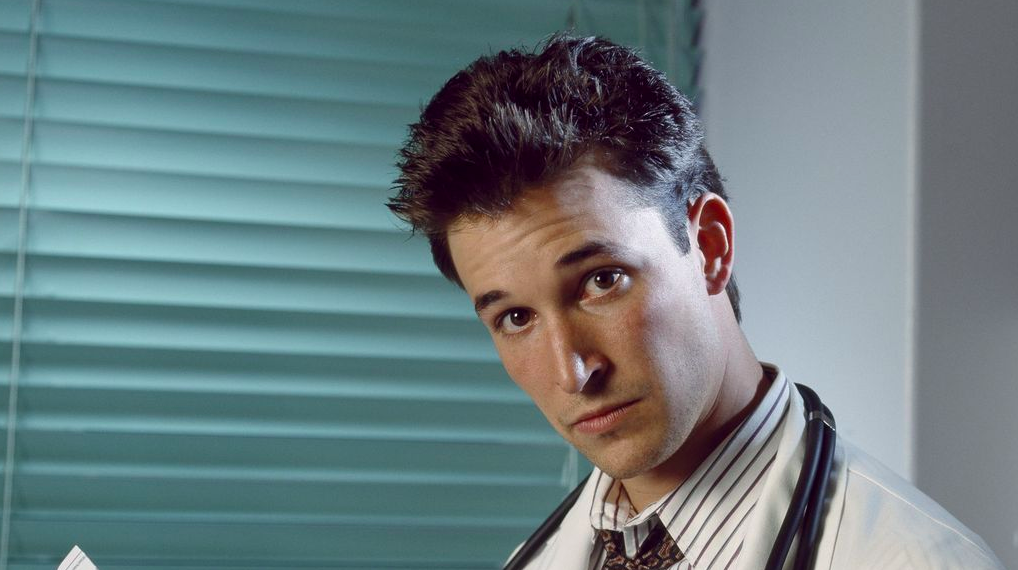When Playing a Doctor on TV is Good Enough

It really shouldn’t be a surprise that many television dramas are set in or around hospitals. You have life or death situations, mysterious ailments, interpersonal relationships among the staff, and really no end to potential plot lines — you can always find another sick character to add into the mix. It should be no surprise that we’ve had so many successful medical dramas — General Hospital, House, Doogie Howser, Grey’s Anatomy, etc. The list goes on.
But, the people who play doctors on TV aren’t doctors. With rare exceptions, they have no medical training. They should not be trusted to perform actual medical procedures.
Sometimes, though, life has other plans.
If you’re a fan of doctor drama ER, you’re definitely familiar with actor Noah Wyle, pictured above. When the show debuted in 1994, he played a doe-eyed medical student named John Carter, and he remained in the role for eleven seasons with some guest appearances in the twelfth and fifteenth (and final) season of the show. As part of his character’s seasons 9 and 10 story arc, Carter leaves the Chicago hospital briefly to volunteer as an emergency physician in war-torn Congo. The conditions in the Congo “hospitals” hardly compare to that in Chicago — the buildings are tents, the equipment second-hand and often inadequate, and the access to medicines lacking. But again, this is a fictionalization of the real world.
Except that it wasn’t entirely fiction. The Congolese scenes were actually filmed on location in Africa, and unfortunately, the resources available during the shoot weren’t quite what one would expect on a Hollywood soundstage. There was an on-set medic to handle medical issues and emergencies, yes, but only one. And at one point, that medic fell ill, succumbing to dehydration.
Wyle snapped into action. According to PBS, Wyle — whose only experience as a medical professional was his years of pretending to be a doctor on TV — “grabbed a working IV and expertly assisted the fallen man.” Per Wyle, “I stuck him with a 14-gauge needle and revived him with a bag of saline, and then I did three or four more that day. There was enough [medical epxperience] that we picked up through osmosis so I could actually, practically, be of use in certain circumstances.”
Whether the medic would have survived otherwise is unclear, but Wyle’s “practice” as a fake ER doc likely made a difference.
Bonus fact: Being a fake actor can also be a medical credential when it comes to TV commercials — but only if you also pay your taxes. You probably knew the first part of that sentence; the line “I’m not a doctor, but I play one on TV” is rather famous. It was first spoken by actor Chris Robinson in an ad for Vicks Formula 44 cough syrup in 1984 — Robinson, at the time, starred as Dr. Rick Webber on the TV soap opera General Hospital but wasn’t a doctor in real life (and still isn’t). Despite the fact that the line is an admission that Robinson was entirely unqualified to make any such medical representations, it seemed to work: consumers tended to trust the advice he gave and Vicks kept that ad or similar ones on-air for years.
But Robinson wasn’t in those subsequent ad campaigns — he had broken the public trust in another way. As Mental Floss notes, Robinson was convicted of tax evasion in 1985, ending his time as a cough syrup pitchman in the process. Vicks’ 1986 ad campaign featured Peter Bergman, who played Dr. Cliff Warner from All My Children, instead. (You can watch that ad here.)
From the Archives: YOLO, M.D.: The secret codes doctors use, and sometimes, in not so nice ways.
